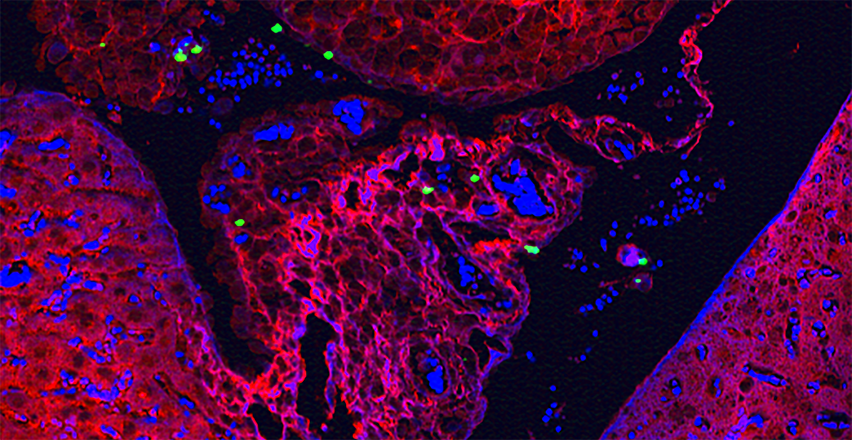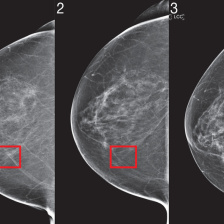
Tiny tumors escape detection via traditional means, but Belcher Lab researchers are using a long-wavelength band of light to penetrate deep into tissue and monitor cancer cells in real time at unprecedented resolution. This image shows layered nanoparticles (green) illuminating a microscopic tumor. Credit: Li Gu and Xiangnan Dang. (2016 Image Award winner)
One of the most effective ways to fight cancer is to find and treat it as soon as possible. Early detection not only increases patients’ chance of survival, but of thriving. Catching cancer before it has a chance to grow and spread often results in fewer, less invasive treatments. With better tools for monitoring cancer, clinicians can look for signs of remission and recurrence sooner and more effectively or track a tumor’s response to treatment.
Our researchers are studying the molecular differences that make cancer cells lethal when left unchecked, and that provide clues to new ways of detecting, identifying, and imaging these cells. We are developing highly sensitive technologies that have the potential to reveal cancer at very early stages, and continuously monitor during and after treatment for signals of remission or relapse. These technologies range from nanoparticle-based urine tests that can detect cancer cells, to machine learning algorithms that predict cancer risk, to deep-tissue imaging systems that reveal tumors smaller than a millimeter. Many of these technologies are being adapted for drug delivery, so that they not only find cancer cells, but destroy them on the spot.



